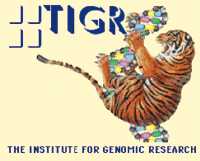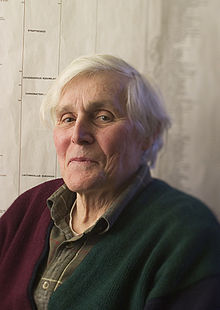Standing on the Shoulders of Giants

‘Standing on the Shoulders of Giants’ is a section in the Microbiology Society’s new open access and open data journal, Microbial Genomics. It aims to highlight the origins of the field of microbial genomics, and celebrate those who have influenced or had a direct impact on genomics-related research. The section will feature interviews with these pioneers, as nominated by the Editorial Board as well as readers of the journal. Additionally, we will seek to highlight ‘giant’ papers that have been highly influential in the field, for example papers that summarise a single discovery, and these will be featured as interviews with Editorial Board members.

FEATURED GIANT
The Institute for Genomic Research (TIGR)
30 May 2017
The Institute for Genomic Research (TIGR, pronounced ‘tiger’) was a nonprofit, private research institute founded in 1992 by J. Craig Venter and Claire Fraser. In 2006, it merged with the J. Craig Venter Institute and disappeared into the pages of history. Although its lifespan was shorter than that of the average tiger, it made a huge impact on the field of genomics. Venter and Fraser were both researchers at the National Institutes of Health (NIH) when, seeking more flexibility and access to newer technology than the NIH was willing to provide, they created TIGR.
TIGR’s bioinformatics team pioneered some of the earliest programs for genome assembly and annotation in microbial genomics. Researchers who transited through TIGR early in their careers say it was a life-changing experience, and to this day feel a kinship that borders on cult. Four TIGR alumni – Elodie Ghedin and Jane Carlton (New York University), Neil Hall (Earlham Institute), Adam Phillippy (National Human Genome Research Institute/NIH) – reminisce on their time at this extraordinary institute.
[Picture credit: The J. Craig Venter Institute]
TIGR’s bioinformatics team pioneered some of the earliest programs for genome assembly and annotation in microbial genomics. Researchers who transited through TIGR early in their careers say it was a life-changing experience, and to this day feel a kinship that borders on cult. Four TIGR alumni – Elodie Ghedin and Jane Carlton (New York University), Neil Hall (Earlham Institute), Adam Phillippy (National Human Genome Research Institute/NIH) – reminisce on their time at this extraordinary institute.
[Picture credit: The J. Craig Venter Institute]
Read 'Riding the TIGR – an oral history

Professor Everitt George Dunne Murray (1890–1964)
7 February 2017
Professor Murray was a microbiologist and clinician who qualified at the beginning of the 20th century. During World War I he was involved in developing some of the first serotyping schemes, for Cerebro-Spinal Fever-causing meningococci, as well as dysentery. He later described the pathogen Listeria monocytogenes and its disease manifestation before moving to McGill University in Canada where he was responsible for building the Department of Bacteriology and Immunology while remaining active in bacterial taxonomy and research. Over his career he amassed hundreds of clinical isolates of enteric bacteria, most of which were collected before the widespread clinical use of antimicrobials. This collection of 'pre-antibiotic' bacteria was passed on to his son when Murray died in 1964 and was formally preserved in the National Collection of Type Cultures in the 1980s, where it is now publically available as a research resource.
[Picture credit: Wellcome images]
[Picture credit: Wellcome images]

Professor Carl Woese
27 September 2016
Carl Woese was an American biophysicist and microbiologist who revolutionised evolutionary biology. In 1977, he uncovered the ‘third domain of life’. He achieved this by defining Archaea (a group of single-cell prokaryotic organisms) – by phylogenetic taxonomy of 16S ribosomal RNA, a technique pioneered by him. Prior to publication of Woese’s paper, scientists believed that all life on Earth belonged to two lineages – eukaryotes and prokaryotes. Woese and his colleagues determined that prokaryotes were actually made up of two different groups of organisms – true bacteria and Archaea, with Archaea more closely related to eukaryotes than bacteria. Carl Woese received many honours and awards for his work and passed away in 2012, aged 84.
[Picture credit: Don Hamerman - Institute for Genomic Biology, University of Illinois at Urbana-Champaign]
[Picture credit: Don Hamerman - Institute for Genomic Biology, University of Illinois at Urbana-Champaign]
Call for nominations:
We would like to encourage all of our readers to nominate a ‘giant’ in the field of microbial genomics or an influential paper in their area of research. Please email [email protected] with your suggestions!
